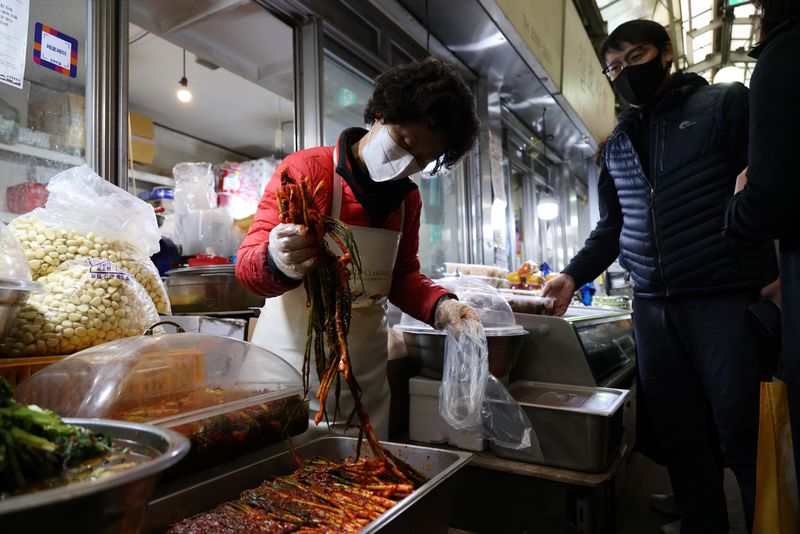(Reuters) - Profits at Ma Hong's spicy hotpot restaurant have been squeezed by about a fifth since he opened in downtown Beijing last year, crushed by beef tripe prices that have shot up by more than 50% and the surging costs of other key ingredients.
"We sell it at the same price as before. Also with the impact of the pandemic, everybody is hanging in there. It is the same all over Beijing, we are not the only restaurant suffering," Ma said.
Asian restaurants and street food hawkers like Ma's face the tough choice of taking the hit from higher costs or passing them on and risk losing loyal customers.
Spiralling prices for ingredients and material that started with supply chain snags during the COVID-19 pandemic and are now being propped up by the war in Ukraine are squeezing businesses and consumers.
Households in Asia, where tasty and affordable street food is an integral part of society and the economy, are feeling the pressure the most.
Mohammad Ilyas, a cook at a biryani store in Karachi, Pakistan, said the price of a kilogram of the seasoned rice dish, enough to feed three to four people, has doubled to 400 Pakistani rupees ($2.20).
"I have been working at this kitchen for the last 15 years," he said. "These days prices of rice and spices have gone up so much that poor people can't afford to eat it."
Some businesses are dealing with the cost pressures by cutting portion sizes.
At one of Jakarta’s street food corners, nasi goreng vendor Syahrul Zainullah has reduced his servings of the signature Indonesian fried rice dish rather than raise prices or use lower grade ingredients.
In South Korea, where consumer inflation is at a decade-high, Choi Sun-hwa, a 67-year-old kimchi shop owner, only gets seven heads of cabbage for the price she used to pay for 10.
The spicy fermented cabbage is traditionally served as a free side dish with other meals at Korean eateries, but even that has become an extravagance.
Seo Jae-eun, a customer at Choi's store, quips kimchi should now be called "keum-chi", keum being Korean for gold.
"I can't ask restaurants to give more kimchi these days and it's too expensive to make my own at home due to high-priced vegetables...so I came here to buy it," she said.
Choi says she won't be able to continue if she can't raise prices.
The price pressures are changing the eating habits of some Asian consumers.
Steven Chang, a 24-year-old service sector worker, is a regular at Just Noodles, a popular ramen store in Taipei but is reconsidering his spending.

"I live away from my parents, so I rely on restaurant food a bit more," Chang said. "So, I will try to limit eating out and cook at home more."
($1 = 182.8200 Pakistani rupees)